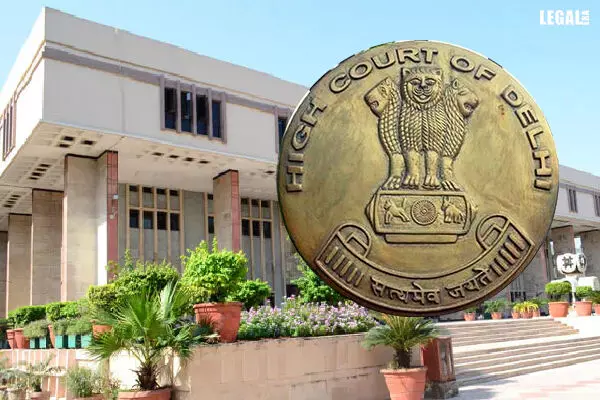- Home
- News
- Articles+
- Aerospace
- AI
- Agriculture
- Alternate Dispute Resolution
- Arbitration & Mediation
- Banking and Finance
- Bankruptcy
- Book Review
- Bribery & Corruption
- Commercial Litigation
- Competition Law
- Conference Reports
- Consumer Products
- Contract
- Corporate Governance
- Corporate Law
- Covid-19
- Cryptocurrency
- Cybersecurity
- Data Protection
- Defence
- Digital Economy
- E-commerce
- Employment Law
- Energy and Natural Resources
- Entertainment and Sports Law
- Environmental Law
- ESG
- FDI
- Food and Beverage
- Gaming
- Health Care
- IBC Diaries
- In Focus
- Inclusion & Diversity
- Insurance Law
- Intellectual Property
- International Law
- IP & Tech Era
- Know the Law
- Labour Laws
- Law & Policy and Regulation
- Litigation
- Litigation Funding
- Manufacturing
- Mergers & Acquisitions
- NFTs
- Privacy
- Private Equity
- Project Finance
- Real Estate
- Risk and Compliance
- Student Corner
- Take On Board
- Tax
- Technology Media and Telecom
- Tributes
- Viewpoint
- Zoom In
- Law Firms
- In-House
- Rankings
- E-Magazine
- Legal Era TV
- Events
- News
- Articles
- Aerospace
- AI
- Agriculture
- Alternate Dispute Resolution
- Arbitration & Mediation
- Banking and Finance
- Bankruptcy
- Book Review
- Bribery & Corruption
- Commercial Litigation
- Competition Law
- Conference Reports
- Consumer Products
- Contract
- Corporate Governance
- Corporate Law
- Covid-19
- Cryptocurrency
- Cybersecurity
- Data Protection
- Defence
- Digital Economy
- E-commerce
- Employment Law
- Energy and Natural Resources
- Entertainment and Sports Law
- Environmental Law
- ESG
- FDI
- Food and Beverage
- Gaming
- Health Care
- IBC Diaries
- In Focus
- Inclusion & Diversity
- Insurance Law
- Intellectual Property
- International Law
- IP & Tech Era
- Know the Law
- Labour Laws
- Law & Policy and Regulation
- Litigation
- Litigation Funding
- Manufacturing
- Mergers & Acquisitions
- NFTs
- Privacy
- Private Equity
- Project Finance
- Real Estate
- Risk and Compliance
- Student Corner
- Take On Board
- Tax
- Technology Media and Telecom
- Tributes
- Viewpoint
- Zoom In
- Law Firms
- In-House
- Rankings
- E-Magazine
- Legal Era TV
- Events
Delhi High Court: Limited Jurisdiction In Reference Doesn't Imply Mechanically Referring Disputes To Arbitration

Delhi High Court: Limited Jurisdiction In Reference Doesn't Imply Mechanically Referring Disputes To Arbitration
Justice Dinesh Kumar Sharma of the Delhi High Court has emphasized that while the court's jurisdiction is limited when making a reference, it should not mechanically refer the disputes to arbitration.
The Court further ruled that if a party opts to file a civil suit to resolve disputes, it cannot later invoke arbitration if the suit proves unsuccessful. Additionally, the Court stated that an arbitration clause in a prior agreement cannot be invoked if the subsequent agreement does not make reference to the previous one.
The parties entered into an agreement dated June 10, 2020 (MOU) and a reconstituted partnership deed dated December 11, 2020, through which the petitioner and respondent no. 5 became partners in the firm M/s Falcon.
Subsequently, on January 13, 2022, a reconstituted partnership deed was executed, in which the petitioner retired and respondents no. 1 and 2 were reinstated as partners. It is worth noting that there was no arbitration clause included in this reconstituted deed.
After the petitioner's FIR and civil suit contesting the validity of the reconstituted partnership deed dated January 13, 2022, were dismissed, the petitioner subsequently invoked the arbitration clause outlined in the MOU.
The petitioner submitted that the reconstituted partnership deeds dated June 28, 2021, and January 13, 2022, were invalid and did not override the earlier agreements.
Furthermore, they contended that the arbitration clause in the MOU dated June 10, 2020, remained enforceable, as it was neither explicitly revoked nor modified in the subsequent deeds.
They maintained that the disputes fell within the scope of the arbitration clause and should be settled through arbitration.
The respondent countered by asserting that the petitioner had initially pursued civil suits regarding the same dispute, and only after failing in those did they resort to arbitration. According to the respondent, initiating civil suits barred the petitioner from invoking arbitration.
Moreover, the respondent argued that both the petitioner and respondent no. 5 had opted for a forum for dispute resolution by filing civil suits, thus precluding the invocation of the arbitration clause.
The Court deliberated on the arbitrability of the disputes and the validity of the arbitration agreement's incorporation into the subsequent partnership deeds. It was noted that the later partnership deeds did not expressly mention the arbitration clause in the MOU. Additionally, the reconstituted partnership deeds dated June 28, 2021, October 1, 2021, and January 13, 2022, did not include an arbitration clause.
The Court referenced the Supreme Court's ruling in NBCC Limited v. Zillin Infraprojects, asserting that for an arbitration clause to be enforceable, there must be a clear indication of reference and intention to incorporate it into the agreement.
The Court noted the petitioner's actions, such as filing an FIR and a civil suit, as suggestive of a preference for litigation over arbitration in resolving the disputes. Citing the precedent set in Raj & Associates v. Videsh Sanchar Nigam Ltd., the Court emphasized that once a party chooses to initiate a suit, it forfeits the option to turn to arbitration. Therefore, the Court concluded that the petitioner's attempt to invoke arbitration subsequent to pursuing civil suits constitutes an abuse of process.
Drawing from the Supreme Court's ruling in Magic Eye Developers Pvt. Ltd. v. M/s Green Edge Infrastructure Pvt. Ltd., the Court emphasized that although its jurisdiction is confined during the reference process, it is not obliged to mechanically refer the dispute to arbitration. Consequently, the court dismissed the petition.


